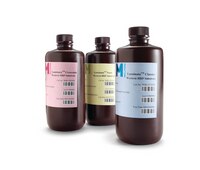Role of replication protein A as sensor in activation of the S-phase checkpoint in Xenopus egg extracts.
Recolin, Bénédicte, et al.
Nucleic acids research, (2011)
2010
Mostra il sommario
Uncoupling between DNA polymerases and helicase activities at replication forks, induced by diverse DNA lesions or replication inhibitors, generate long stretches of primed single-stranded DNA that is implicated in activation of the S-phase checkpoint. It is currently unclear whether nucleation of the essential replication factor RPA onto this substrate stimulates the ATR-dependent checkpoint response independently of its role in DNA synthesis. Using Xenopus egg extracts to investigate the role of RPA recruitment at uncoupled forks in checkpoint activation we have surprisingly found that in conditions in which DNA synthesis occurs, RPA accumulation at forks stalled by either replication stress or UV irradiation is dispensable for Chk1 phosphorylation. In contrast, when both replication fork uncoupling and RPA hyperloading are suppressed, Chk1 phosphorylation is inhibited. Moreover, we show that extracts containing reduced levels of RPA accumulate ssDNA and induce spontaneous, caffeine-sensitive, Chk1 phosphorylation in S-phase. These results strongly suggest that disturbance of enzymatic activities of replication forks, rather than RPA hyperloading at stalled forks, is a critical determinant of ATR activation. | 22187152
 |









